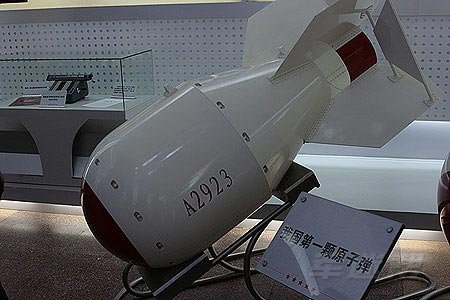Meanwhile the tireless Rutherford, now back at Cambridge as J. J. Thomson's successor as head of the Cavendish Laboratory, came up with a model that explained why the nuclei didn't blow up. He saw that they must be offset by some type of neutralizing particles, which he called neutrons. The idea was simple and appealing, but not easy to prove. Rutherford's associate, James Chadwick, devoted eleven intensive years to hunting for neutrons before finally succeeding in 1932. He, too, was awarded with a Nobel Prize in physics, in 1935.

As Boorse and his colleagues point out in their history of the subject, the delay in discovery was probably a very good thing as mastery of the neutron was essential to the development of the atomic bomb. (Because neutrons have no charge, they aren't repelled by the electrical fields at the heart of an atom and thus could be fired like tiny torpedoes into an atomic nucleus, setting off the destructive process known as fission.) Had the neutron been isolated in the 1920s, they note, it is "very likely the atomic bomb would have been developed first in Europe, undoubtedly by the Germans."











